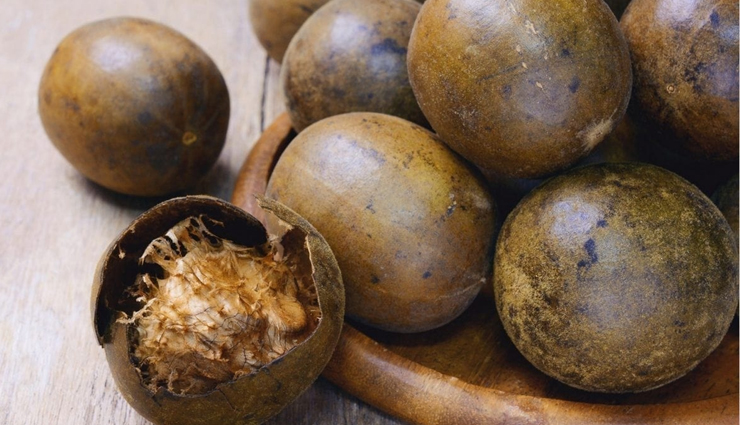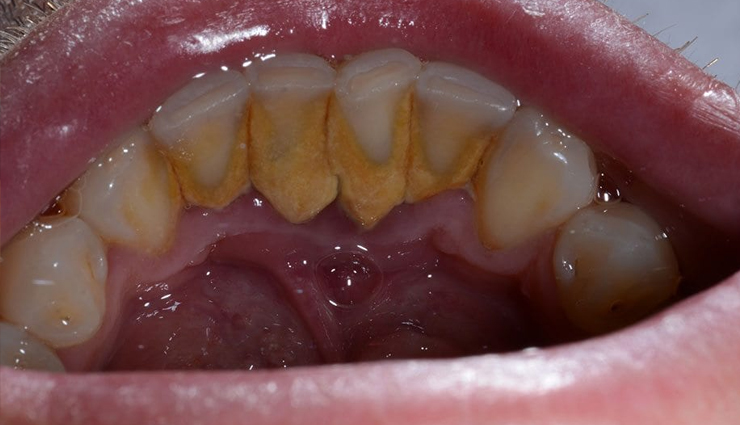- Home›
- Healthy Living›
- 7 Least Known Health Benefits Of Monk Fruit
7 Least Known Health Benefits Of Monk Fruit
By: Priyanka Maheshwari Tue, 10 Oct 2023 4:06:09

Monk fruit, scientifically known as Siraitia grosvenorii or Luo Han Guo, is a small, green gourd-like fruit native to southern China and Northern Thailand. It has been used for centuries in traditional Chinese medicine and cuisine, primarily for its natural sweetness and potential health benefits. Monk fruit is often referred to as the "Buddha fruit" or the "luo han guo" because of its association with monks who were believed to have cultivated and used it in ancient times.
One of the most remarkable characteristics of monk fruit is its intense sweetness, which comes from compounds called mogrosides found in the fruit. These mogrosides are incredibly sweet but contain zero calories, making monk fruit a popular natural sweetener for those looking to reduce their sugar intake or manage their calorie consumption. Monk fruit extract is used as a sugar substitute in various food and beverage products, including sugar-free and low-calorie items.
Apart from its sweetening properties, monk fruit has also been studied for potential health benefits. It is believed to have antioxidant properties due to the presence of mogrosides, which may help combat oxidative stress in the body. Additionally, monk fruit has been associated with potential anti-inflammatory and antidiabetic effects, although more research is needed to fully understand these benefits.
Monk fruit has gained popularity as a natural sweetener in recent years, especially in products marketed to individuals who follow low-carb or low-sugar diets. Its use is not limited to food and beverages; it can also be found in dietary supplements and health products.

# Low-Calorie Sweetener
Monk fruit extract is incredibly sweet but contains no calories or carbohydrates. This makes it a suitable sugar substitute for people looking to reduce calorie and carbohydrate intake, such as those with diabetes or those on low-carb diets.
# Blood Sugar Control
Some studies suggest that monk fruit may have a beneficial impact on blood sugar levels. The mogrosides in monk fruit have been shown to have antihyperglycemic effects, potentially helping to regulate blood glucose levels. This can be particularly important for individuals with diabetes or those at risk of developing the condition.

# Antioxidant Properties
Monk fruit contains natural antioxidants, such as mogrosides, which may help protect cells from oxidative damage caused by free radicals. Antioxidants play a crucial role in overall health and are associated with a reduced risk of chronic diseases.
# Anti-Inflammatory Effects
There is some evidence to suggest that monk fruit may have anti-inflammatory properties. Chronic inflammation is associated with various health issues, and consuming foods or supplements with anti-inflammatory properties can potentially have a positive impact on overall health.

# Weight Management
Because monk fruit is calorie-free and does not raise blood sugar levels, it can be a useful tool for those trying to manage their weight. It can be used as a sugar substitute in foods and beverages, helping to reduce overall calorie intake.

# Dental Health
Monk fruit is non-cariogenic, meaning it doesn't promote tooth decay. Unlike sugar, which can contribute to cavities when consumed in excess, monk fruit sweeteners are tooth-friendly.

# Potential Anti-Cancer Properties
Some studies have suggested that monk fruit extract may have anticancer properties. Mogrosides in monk fruit have been investigated for their potential to inhibit the growth of certain cancer cells, although more research is needed in this area.





